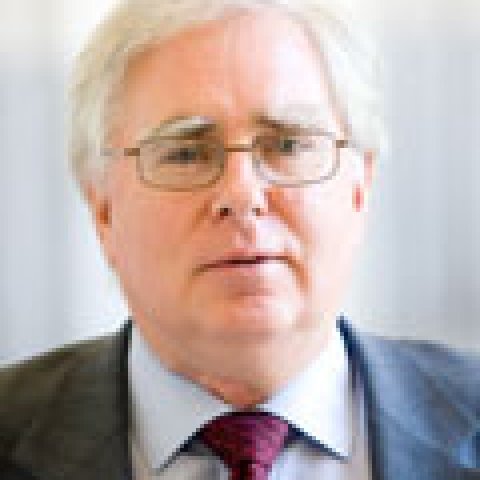John Coakley
Former Fellow
Professional Affiliation
Associate Professor of Politics, University College Dublin
Expert Bio
Born in a small town in the west of Ireland (in Claremorris, Co. Mayo), my earliest recollection of the significance of religious difference was my realization that the town contained just one Protestant, an elderly lady (though a nearby castle was home to a local Protestant lord). As I grew up, of course the complexity of religion and its political and social links became more obvious, and my late teens coincided with the outbreak of civil unrest in Northern Ireland-—far from Claremorris, but at that time a vivid part of every Irish household because of intense television coverage.Although I never consiciously chose to study the subject of ethnic conflict at college, my undergraduate years extended over courses in Irish, British and European history and Irish and comparative politics that raised significant intellectual questions about the interpretation of events in the northern part of Ireland. I was able to pursue these further at graduate level, where I first developed an interest in seeking out a comparative framework for Irish nationalism. This I found, surprisingly enough, in the language-based nationalism of the smaller countries of central and eastern Europe, where peasant moblization was intertwined with cultural activism, efforts to redress socio-economic grievances and demands for political autonomy-—themes very familiar to those versed in Irish history. A year at the University of Bergen (where it was possible to work closely with Stein Rokkan) and another at the London School of Economics (whose wonderful library, like that of the British Museum, was a joy to work in) allowed me to develop this interest further.But personal obsession with a relatively narrow area is rarely an adequate qualification for an academic career, and I found that, as a teacher, the more conventional nuts and bolts of Irish and comparative politics and general trends in political sociology were the kinds of issues that the curriculum demanded. Developing my interest and expertise in these areas offered an invaluable broadening of perspective, and enriched my study of nationalism and ethnic conflict by forcing me to take a wide view. Work on the organizational side of the discipline (first in the Political Studies Association of Ireland, then as secretary general of the International Political Science Association, and finally as a member of the executive of the International Social Science Council) was in many ways a serious distraction from academic research; but it also helped to draw attention to bodies of intellectual work that would otherwise have amounted to little more than entries in a bibliographical database.More recently, a sense of guilt at the relative passivity of the academic community in sharing rare expertise with policymakers led me and other colleagues to set up the Institute for British-Irish Studies in 1999. This marked a more conscious effort to look not just at causes of ethnic conflict but also at potential solutions, and to do so in an environment where academics and policymakers can profitably interact. It was this track that took me back to the old question of consociational democracy, and to my current Wilson Center project.
Education
B.A. (1972) History and Politics, University College Dublin; M.A. (1974) Politics, University College Dublin; Dlitt (2002) Politics, National University of Ireland
Subjects
Ethnic Conflict,Nationalism,Northern Ireland
Experience
- Lecturer, senior lecturer, associate professor in politics, UCD, 1994-present
- Lecturer in politics, NIHE / University of Limerick, 1976-94
- Vice President, International Social Science Council, 2002-present
- Secretary General, International Political Science Association, 1994-2000
Expertise
Irish and comparative politics; Northern Ireland; nationalism and ethnic conflict
Wilson Center Project
"Consociation Versus Democracy? A Dilemma for Ethnic Conflict Management"
Project Summary
Consociational democracy is a challenging and much-challenged concept, and has attracted a large and sectarian literature. It sets apart those who are committed to consociation as a strategy for the resolution of ethnic conflict from those for whom consociational democracy is a fig-leaf for conservative, elite-dominated government. This project seeks to reconcile major strands in this literature by proposing a radical redefinition of basic terminology, re-analyzing data relating to "classic" examples, exploring potential new cases, and seeking to specify the optimum conditions for its successful operation. Outputs would include three major articles, to be expanded later into a book-length study.
Major Publications
- Renovation or Revolution? New Territorial Politics in Ireland and the United Kingdom co-edited with Brigid Laffan and Jennifer Todd, (UCD Press, 2005)
- Politics in the Republic of Ireland 4th ed. co-edited with Michael Gallagher),
(Routledge, 2004) - The Territorial Management of Ethnic Conflict Second rev. ed. contributing editor(Frank Cass, 2003)
